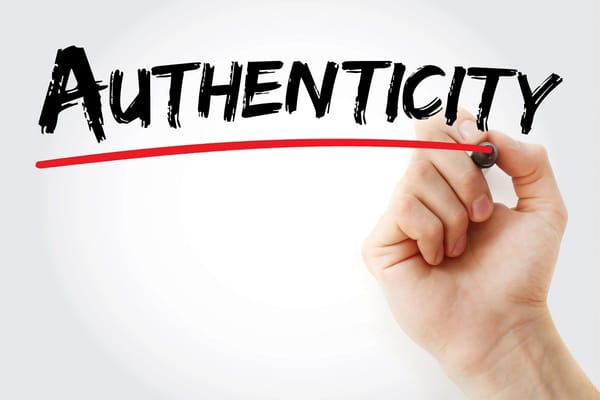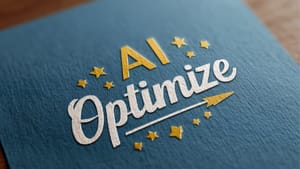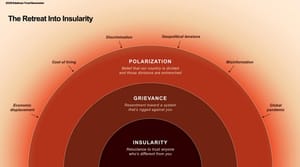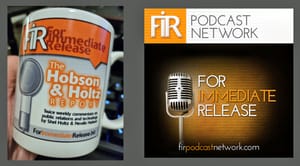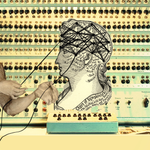I just read a thoughtful article on Ragan's PR Daily by Jess Zafarris that takes a scalpel to a word I’ve used countless times in my career: authenticity. She describes it as “a jargon-drenched word that refuses to die,” and I felt both seen and slightly exposed. It’s a thought-provoking analysis of how the term has shifted from meaning “the real deal” to something so malleable, it now risks sounding hollow.
Like many communicators, I’ve leaned heavily on "authenticity" to convey trustworthiness, transparency, and a sense of being grounded (per this definition). It’s become a catch-all word I reach for when talking not only about tone, behaviour, and brand values, but also leadership, credibility, transparency, and culture. Zafarris’s article highlights the problem: we’ve stretched its meaning to the point where it's no longer clear today.
That's apparent if you go to the definition on Wikipedia, where you'll get a disambiguation page listing links to more than 20 definitions of "authenticity."
Word Origins
Zafarris traces the roots of the word back to Greek and ecclesiastical contexts, where it referred to something original and authoritative, and guides us through its evolution into a modern marketing ideal.
And now, it’s everywhere. Authentic leadership. Authentic voice. Authentic content. You can’t walk through a communication strategy without tripping over it. But as Zafarris rightly points out (she is an etymologist which, in my book, gives her... authenticity), this overuse, especially in the hands of brands, has turned it into more of a performance than a principle.
I’m definitely guilty of this. In presentations, client meetings, blog posts, social media... I’ve used "authentic" as shorthand for a wide range of things: honesty, relatability, transparency, credibility. What I didn’t always do was clarify what I actually meant or show how it manifested in real behaviour.
The PR Daily article offers a useful framework from a 2015 study – continuity, credibility, integrity, and symbolism – as a way to pin down the concept. However, even those ideas can be selectively chosen or presented without evidence.
Make It Mean Something
When everything becomes “authentic,” nothing really is.
Zafarris’s advice is spot on: if you’re going to use the word, define it. Back it up with specifics. Make it mean something. Or better yet, drop it and describe the behaviours, values or outcomes you’re really talking about.
That’s something I’ll be more conscious of in my own work going forward. Not just avoiding the word for the sake of it, but making sure I’m not hiding behind it.
Because when everything sounds authentic, we stop noticing what actually is.


